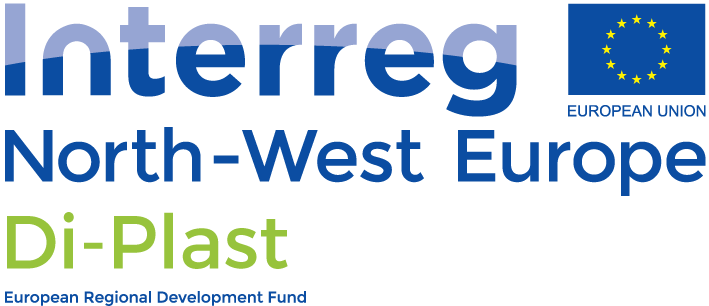Main content
Top content
 Stiftungsprofessur Semantische Informationssysteme gefördert von der ROSEN Gruppe.
Stiftungsprofessur Semantische Informationssysteme gefördert von der ROSEN Gruppe.
Semantic Information Systems
Contact
Research Group Semantic Information Systems
Prof. Dr. Martin Atzmüller
Secretary: Jantje Apfeld
sekretariat@informatik.uni-osnabrueck.de
+49 541 969 2480
Semantic Information Systems
Institute of Computer Science
Osnabrueck University
P.O. Box 4469
49069 Osnabrueck, Germany
News
- New paper in Data Mining and Knowledge Discovery
Martin Atzmueller, Johannes Fürnkranz, Tomas Kliegr, Ute Schmid (2024) Explainable and Interpretable Machine Learning and Data Mining - New paper in ROMAN (IEEE International Conference on Robot and Human Interactive Communication)
Timo Markert, Sebastian Matich, Daniel Neykov, Jonas Pfannes, Andreas Theissler, Martin Atzmueller (2024) Force-based Haptic Input Device and Online Motion Generator: Investigating Learning Curves in Robotic Telemanipulation - New paper in International Journal of Data Science and Analytics
Stefan Bloemheuvel, Jurgen van den Hoogen, and Martin Atzmueller (2023) Graph construction on complex spatiotemporal data for enhancing graph neural network-based approaches - New paper in International Journal of Data Science and Analytics
Jurgen van den Hoogen, Dan Hudson, Stefan Bloemheuvel, Martin Atzmueller (2023) Hyperparameter analysis of wide-kernel CNN architectures in industrial fault detection: an exploratory study - New paper in Data Mining and Knowledge Discovery
Mouloud Iferroudjene, Corentin Lonjarret, Celine Robardet, Marc Plantevit, Martin Atzmueller (2023) Methods for Explaining Top-N Recommendations Through Subgroup Discovery - Best Paper Award (IEEE ETFA/IES Young Professionals & Students Paper Award) for the Paper Visual Detection of Tiny and Transparent Objects for Autonomous Robotic Pick-and-Place Operations, IEEE (2022) by Timo Markert, Sebastian Matich, Daniel Neykov, Markus Muenig, Andreas Theissler, and Martin Atzmueller
>> Check out our video << - New paper in International Journal of Data Science and Analytics
Stefan Bloemheuvel, Jurgen van den Hoogen, Dario Jozinovic, Alberto Michelini, and Martin Atzmueller (2022) Graph neural networks for multivariate time series regression with application to seismic data - New paper Behavior Research Methods
Dan Hudson, Travis J. Wiltshire, and Martin Atzmueller (2022) multiSyncPy: A Python Package for Assessing Multivariate Coordination Dynamics - New paper in Applied Network Science.
Stefan Bloemheuvel, Jurgen van den Hoogen and Martin Atzmueller (2021) A Computational Framework for Modeling Complex Sensor Network Data Using Graph Signal Processing and Graph Neural Networks in Structural Health Monitoring - New Paper in Applied Sciences: Special Issue Data Mining Applications in Industry 4.0
Jurgen van den Hoogen, Stefan Bloemheuvel, and Martin Atzmueller (2021) Classifying Multivariate Signals in Rolling Bearing Fault Detection Using Adaptive Wide-Kernel CNNs - Best Paper Award (IEEE ETFA/IES Young Professionals & Students Paper Award) for the Paper Fingertip 6-Axis Force/Torque Sensing for Texture Recognition in Robotic Manipulation, IEEE (2021) by Timo Markert, Sebastian Matich, Elias Hoerner, Andreas Theissler, and Martin Atzmueller
>> Check out our video << - New Paper accepted at DSAA 2021 (8th IEEE International Conference on Data Science and Advanced Analytics) Leonid Schwenke and Martin Atzmueller (2021) Constructing Global Coherence Representations: Identifying Interpretability and Coherences of Transformer Attention in Time Series Data
- New Paper - nominated for Best Paper Award - at the 34th International FLAIRS Conference.
Leonid Schwenke and Martin Atzmueller (2021) Show Me What You’re Looking For: Visualizing Abstracted Transformer Attention for Enhancing Their Local Interpretability on Time Series Data.
SIS Research & Mission
The research of the ROSEN-Group-Endowed Chair of Semantic Information Systems and the according research group, headed by Prof. Dr. Martin Atzmueller, centers around Artificial Intelligence (AI), Data Science, and Integrative AI Systems. Its major focus is on machine learning and analysis on complex (sensor) data such as images, graphs, networks, and temporal data, often encountered in complex systems, as well as the respective system view and design perspectives.
Overall, our research focuses on how to 'make sense' of complex information and knowledge processes - supporting intelligent decision making and according acting - by leveraging the massive amounts of data collected in science and industry. This includes research on modeling complex data, explainable AI, interpretable learning, machine perception as well as semantic interpretation. In particular, this also relates to applications in complex integrative AI system domains, for example, to robot control and integrative sensor-based AI systems.
The Semantic Information Systems research group is founding member of the Research Unit Data Science at Osnabrück University. In addition, the group is also connected with the German Research Center for Artificial Intelligence (DFKI), in particular DFKI Niedersachsen where Prof. Atzmueller is Scientific Director of the Research Department Cooperative and Autonomous Systems.
In addition, Prof. Atzmueller is founding spokesperson of the Joint Lab on Artificial Intelligence and Data Science and the HybrInt research group (Hybrid Intelligence through Interpretable AI in Machine Perception and Interaction).
People's Info
 |
Prof. Dr. Martin Atzmueller Head of Semantic Information Systems group. Research Interests:: Artificial Intelligence, Knowledge Discovery, Machine Learning, Network Science, Pattern Mining |
Research Assistants/PhD Students/External PhD Students
 |
Arnab Ghosh Chowdhury
Deep Learning, Information Engineering, Multi-Modal Learning, Image Analysis |
 |
Dan Hudson
Anomaly and Exceptionality Detection, Deep Capsule Networks, Time Series Analysis, Sensor Data |
 |
Steffen Meinert
Deep Learning, Uncertainty Quantification, Explainability, Heterogeneous Data |
 |
Leonid Schwenke
Deep Learning, Transformer Architectures, Knowledge-Aware Explanation Engineering, Time Series Analysis |
 |
Harihara Bharathy Swaminathan
Automotive Radar Sensors, Environment Perception, HD Map Reliability, Machine Learning, Autonomous Driving. |
 |
Stefan Bloemheuvel (JADS):
Graph Signal Processing, Graph Neural Networks, Time Series Analysis, Sensor Networks |
 |
Frank Ehebrecht (ROSEN):
Informed Machine Learning, Deep Learning, Physical Models, Sensor Data Analysis |
 |
Timo Markert (Wittenstein SE):
Machine Learning, Sensor Data Analysis, Tactile Object Recognition, Robotic Manipulation |
 |
Parisa Shayan (TiU):
Educational Data Mining, Network Analysis, User Modeling, Learning Management Systems |
 |
Jurgen van den Hoogen (JADS):
Deep Learning, Time Series Analysis/Classification, Fault Diagnosis, Sensor Data |
Projects
-
MODUS is a project funded by DFG for Model-based Anomaly Pattern Detection and Analysis in Ubiquitous and Social Interaction Networks.
-
Di-Plast: Digital Circular Economy for the Plastics Industry (funded by Interreg NWE (EFRE, EU regional development fond)). Di-Plast improves processes for a more stable rPM material supply and quality using artificial intelligence methods and data science approaches: sensoring generates data within supply chains; data analytics provides information about rPM quality, amounts, and supply timing; Value Stream Management improves rPM processes & logistics, environmental assessments validate sustainability.

-
NWO KIEM ICT ODYN: Observing Team Dynamics and Communication using Sensor-Based Social Analytics.
-
Resilient Athletes: In this interdisciplinary project (funded by ZonMW), a multidisciplinary personalized human-sensor-based data science approach is being developed and applied. We focus on the resilience of athletes, with the aim that athletes can cope with the physical and mental stress factors to which they are exposed.
Software/Tools
- VIKAMINE is an extensible open-source rich-client environment and platform for exploratory pattern mining and analytics. VIKAMINE features powerful and intuitive visualizations complemented by fast automatic mining methods; it is provided as Open Source, under the GNU Lesser General Public License (LGPL).
- The R subgroup package (rsubgroup R package) provides a wrapper around the VIKAMINE core.
Teaching
Summer term/Sommersemester 2023
Winter term/Wintersemester 2022/23
Summer term/Sommersemester 2022
Winter term/Wintersemester 2021/22
Summer term/Sommersemester 2021
Master/Bachelor Theses
We offer various Bachelor/Master thesis topics. A non-exhaustive list of open topics is listed below. If you are interested in a thesis, please send your CV and transcript of records to Prof. Martin Atzmüller via email and we will arrange a meeting to talk about the potential topics.
- Symbolic Time Series Embedding (Information: Leonid Schwenke): In Deep Learning, embeddings are used to create an informative data format. Especially in NLP word embeddings like e.g. word2vec (https://arxiv.org/abs/1301.3781) are common appearance. In the area of Time Series data a similar solution is desired. For this reason, multiple new embeddings got proposed in recent years. However, as described in journals.flvc.org/FLAIRS/article/view/133107 those embeddings often lack interpretability. The goal of the proposed thesis would be now to take a time series embeddings like e.g. link.springer.com/article/10.1007/s00521-020-04916-5 and adapt it into a more interpretable symbolic-based approach. Here multiple approaches would be valid and could be discussed as a thesis goal. For example, a Master Thesis could tackle the following: as stated in the conclusion of the paper, a more symbolic abstract approach (e.g. SAX and SFA) could be used as core mechanic to approximate a word2vec like approach. Especially, combining multiple symbolic features is desirable. Hereby, the concept of journals.flvc.org/FLAIRS/article/view/133107 should be considered to maintain the interpretability of the embedding. Alternatively, for a Bachelor Thesis: symbolic approximations bring time series tasks closer to natural language processing and thus tend to highlight distinctive patterns which can be used for time series classification, e.g. BOSS https://link.springer.com/article/10.1007/s10618-014-0377-7) and WEASEL arxiv.org/abs/1701.07681 . The task would be to use SFA to find word-like patterns and train a word2vec approach on those words.
- Comparing Attention-based Interpretability Methods with SHAP (Information: Leonid Schwenke): In Deep Learning, Interpretability is a desirable feature for each neural network. Saliency maps or attribution scores help to find the most "important" features for a given input/task. However, it is quite hard to evaluate those values. On the other hand, approaches like SHAP github.com/slundberg/shap are mathematical funded, but very time-consuming to calculate. The goal of the thesis would be to compare multiple saliency map based methods to the output of SHAP on simple and clear tabular classification tasks. Questions like "On which data/patterns do they agree/disagree?", "Does a combination of SHAP and saliency maps makes sense?" and "Do correlations exists?" should be answered. Hereby, the main focus should lie on local and global attention-based approaches (Transformer) like e.g. LASA https://journals.flvc.org/FLAIRS/article/download/128399/130111 and GCR https://ieeexplore.ieee.org/document/9564126 . For a master thesis, a more in depth comparison and further attention-based XAI methods should be included.
- Evaluation of Learning Procedure of CNN architecture using Information (Bottleneck) Theory (Information: Arnab Ghosh Chowdhury): Evaluate Learning Procedure of CNN architecture using Information (Bottleneck) Theory (X.Shi et al. Evaluating the Learning Procedure of CNNs through a Sequence of Prognostic Tests Utilising Information Theoretical Measures; PhD Thesis of Ravid Shwartz-Ziv: Information Flow in Deep Neural Networks, arxiv.org/abs/2202.06749)
- Measure Uncertainty for Semantic Segmentation (Image) in Active Learning (Information: Arnab Ghosh Chowdhury): Investigate approaches for uncertainty measurement for Semantic Segmentation (Image) in Active Learning, c.f. Cygert, Sebastian, et al. "Closer look at the uncertainty estimation in semantic segmentation under distributional shift." 2021 International Joint Conference on Neural Networks (IJCNN). IEEE, 2021.
- Probabilistic Programming and Deep Learning (Information: Steffen Meinert): Evaluate an improve the applied inference technique Hamiltonian Monte Carlo with advanced approaches.
- Combining Graph Neural Networks and Bayesian Neural Networks (Information: Steffen Meinert): Combine the approach of Bayesian Neural Networks (BNN) and combine them with the approach of Graph Neural Networks (GNN), ieeexplore.ieee.org/abstract/document/9555949
- How to train your anomaly detector: examining the impact of different types of synthetic anomaly on the training of a state-of-the-art neural network anomaly detector (Information: Dan Hudson): Anomaly detection for time series is a topic with considerable practical importance, e.g., for monitoring sensor readings in critical infrastructure. One of the most successful methods in this domain uses a neural network called ‘NCAD’, described in “Neural Contextual Anomaly Detection for Time Series” (Carmona et al., 2021, https://arxiv.org/abs/2107.07702). This approach uses synthetic anomalies which are ‘injected’ during training, however, so far, there has only been a limited investigation of how the results are influenced by the way these synthetic anomalies are constructed. Therefore, this study will consider different ways of creating synthetic anomalies and investigate how they impact the predictions of the trained NCAD model. Inspiration on how to construct synthetic anomalies can be found in “TimeEval: a benchmarking toolkit for time series anomaly detection algorithms” (Wenig, Schmidl and Papenbrock, 2022, https://hpi.de/fileadmin/user_upload/fachgebiete/naumann/publications/PDFs/2022_wenig_timeeval.pdf).
- How much data is enough data for anomaly detection? Investigating the relationship between data availability and model performance in neural networks for anomaly detection (Information: Dan Hudson): Deep learning methods have made considerable improvements over previous ML techniques when identifying anomalies in benchmark datasets, however, such methods are ‘data-hungry’. In many contexts, data availability is limited, raising the question of how much data is enough in order to successfully train deep learning models for anomaly detection. This research project will investigate the impact of reducing the quantity of training data on the performance of a selection of state-of-the-art deep learning models for anomaly detection. Examples of neural networks that might be especially data-hungry are: “TranAD: Deep Transformer Networks for Anomaly Detection in Multivariate Time Series Data” (Tuli, Casale and Jennings, 2022, https://arxiv.org/abs/2201.07284), and “Neural Contextual Anomaly Detection for Time Series” (Carmona et al., 2021, https://arxiv.org/abs/2107.07702). A recent review of general ML anomaly detection techniques can be found in “Anomaly Detection in Time Series: A Comprehensive Evaluation” (Schmidl, Wenig and Papenbrock, 2022, http://vldb.org/pvldb/vol15/p1779-wenig.pdf).

